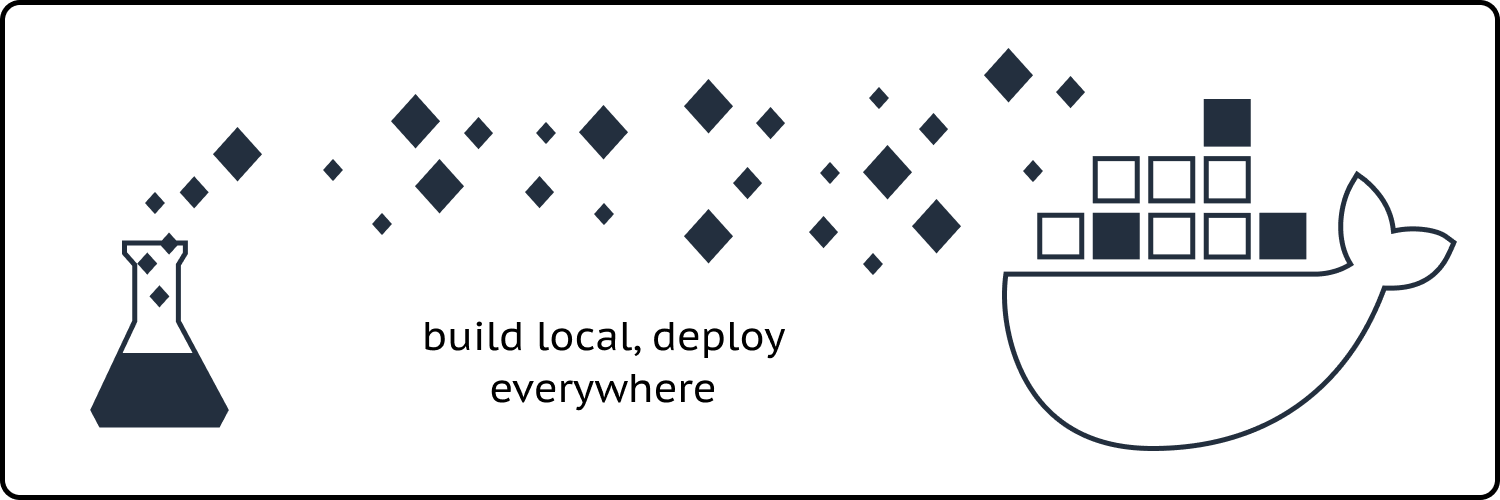
Security News
vlt Launches "reproduce": A New Tool Challenging the Limits of Package Provenance
vlt's new "reproduce" tool verifies npm packages against their source code, outperforming traditional provenance adoption in the JavaScript ecosystem.
A docker tool that helps put machine learning in places that empower ml developers

MLDOCK builds in conveniences and the power of docker and frames it around the core machine learning tasks related to production.
As a tool this means MLDOCK's goals are:
What it is not:
Inspired by Sagify, Sagemaker Training Toolkit and Amazon Sagemaker.
dotenv easily configure environment.pip install --user python-dotenv[cli]
note: dotenv allows configuring of environment through the .env file. MLDOCK uses ENVIRONMENT VARIABLES in the environment to find your DOCKER_HOST, DOCKERHUB credentials and even AWS/GCP credentials.
# for windows and if you are using WSL1
DOCKER_HOST=tcp://127.0.0.1
# for WSL2 and linux (this is default and should work out of the box)
# but for consistency, set this dockerhost
DOCKER_HOST=unix://var/run/docker.sock
note: Now to switch environments just use dotenv as follows:
dotenv -f "/path/to/.env" run mldock local build --dir <my-project-path>
The MLDOCK command line utility provides a set of commands to streamline the machine learning container image development process. The commands are grouped in to 3 functionality sets, namely:
| Command Group | Description |
|---|---|
| container | A set of commands that support creating new containers, initialize and update containers. Also, provides commands for created new MLDOCK supported templates from previously built container images. |
| local | A set of commands to use during the development phase. Creating your trainer, prediction scripts and debugging the execution of scripts. |
| registry | A set of tools to help you push, pull and interact with image registries. |
The pip install is the only supported package manager at present. It is recommended that you use an environment manager, either virtualenv or conda will work.
pip install mldock[cli]
This command sets up mldock cli with some nice to have defaults. It may even prompt you for some set up.
mldock configure init
You will see a some of prompts to set up container.
mldock project init --dir my_ml_container
note:
mldock local build --dir my_ml_container
mldock local train --dir my_ml_container
mldock local deploy --dir my_ml_container
.envDOCKERHUB_USERNAME=<your/user/name>
DOCKERHUB_PASSWORD=<your/dockerhub/password>
DOCKERHUB_REGISTRY=https://index.docker.io/v1/
DOCKERHUB_REPO=<your/user/repo/name>
mldock registry push --dir my_ml_container --provider dockerhub --build
note: The flags allow you to stipulate configuration changes in the command.
--build says build the image before pushing. This is required initially since the dockerhub registry will prefix your container name. --provider tells MLDOCK to authenticate to dockerhub and push the container there.
hint In addition to DockerHub, both AWS ECR & GCP GCR are also supported.
FAQs
A docker tool that helps put machine learning in places that empower ml developers
We found that mldock demonstrated a healthy version release cadence and project activity because the last version was released less than a year ago. It has 2 open source maintainers collaborating on the project.
Did you know?

Socket for GitHub automatically highlights issues in each pull request and monitors the health of all your open source dependencies. Discover the contents of your packages and block harmful activity before you install or update your dependencies.

Security News
vlt's new "reproduce" tool verifies npm packages against their source code, outperforming traditional provenance adoption in the JavaScript ecosystem.

Research
Security News
Socket researchers uncovered a malicious PyPI package exploiting Deezer’s API to enable coordinated music piracy through API abuse and C2 server control.

Research
The Socket Research Team discovered a malicious npm package, '@ton-wallet/create', stealing cryptocurrency wallet keys from developers and users in the TON ecosystem.